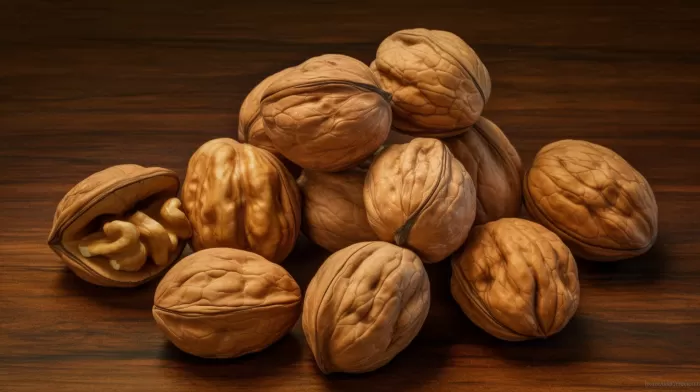Colon cancer affects more than 250 Americans daily, making it an incredibly prevalent health risk. Fortunately, there are simple dietary changes you can make to help protect yourself against this deadly disease. By incorporating walnuts into your diet, you’re not only receiving a delicious snack but also actively fighting the development of colon tumors.
Why Walnuts Are So Powerful
Lab tests from Beth Israel Deaconess Medical Center and Harvard Medical School have demonstrated that walnuts can potentially slow down inflammation associated with tumor growth. Walnuts are rich in essential fatty acids and other natural substances that can impede the expansion of cancer cells. By affecting the behavior of cancer cells’ miRNAs—compounds involved in controlling inflammation—walnuts can have a significant impact on preventing or reducing the risk of colon cancer.
Christos Mantzoros, one of the researchers involved in the study, says, “Our research demonstrates that a walnut diet causes significant changes in the expression profile of miRNAs in localized colorectal cancer tissue, and that a walnut diet incorporates protective fatty acids in the colonic tumor either through its direct effects or through additive or synergistic effects of multiple other compounds present in walnuts.” More research is needed, but miRNAs may eventually serve as biomarkers of disease and prognosis, as well as potential therapeutic targets for colon cancer treatment.
The lab experiments conducted by the research team found that tumors in animals given walnuts contained ten times the amount of omega-3 fats in comparison to those who did not consume walnuts. These omega-3s (which include alpha-linolenic acid, or ALA) limit the size and growth of the tumors, thereby reducing the risk of colon cancer development.
Walnuts and Healthy Fats
If you’re concerned about the “fat” content in nuts, rest assured that nuts contain healthy fats that are crucial for overall health. In comparison to other types of nuts, walnuts have significantly higher levels of the omega-3 ALA. This type of fat is essential for reducing inflammation throughout the body. Furthermore, ALA is considered an “essential” fatty acid, which means your body cannot produce it on its own, and it must be obtained through the foods you eat.
Incorporating Walnuts into Your Diet
To benefit from the cancer-fighting properties of walnuts, consider incorporating them into your daily meals and snacks. Here are some simple ideas to get started:
- Breakfast Boost: Sprinkle walnuts on your morning oatmeal, yogurt, or granola for a satisfying crunch and extra nutrients.
- Salad Enhancer: Add a handful of walnuts to your salad for a boost of healthy fats and a delicious, nutty flavor.
- Snack Swap: Swap out unhealthy, processed snack foods for a handful of raw or roasted walnuts to keep hunger at bay between meals.
- Baking Buddy: When baking bread, muffins, or cookies, mix in some chopped walnuts for added texture and nutritional value.
- Plant-Based Protein: For vegans and vegetarians, walnuts are an excellent source of plant-based protein. Use them in veggie burgers, stir-fries, or other dishes in place of meat.
Keep in mind that walnuts are also versatile, so feel free to get creative and find new ways to enjoy these nutritious and cancer-fighting nuts. Walnuts are only one example of a “superfood” with impressive health benefits. Continually striving to incorporate a wide variety of nutrient-dense, whole foods into your diet is one of the best ways to reduce your risk of developing not just colon cancer, but many other chronic diseases and health issues as well.
While further research is still needed, there’s no denying that adding walnuts to your diet can provide a wide range of potential health benefits, chief among them being protection against colon cancer. By making deliberate, health-conscious choices about the foods you consume, you are actively taking control of your health and wellbeing.



